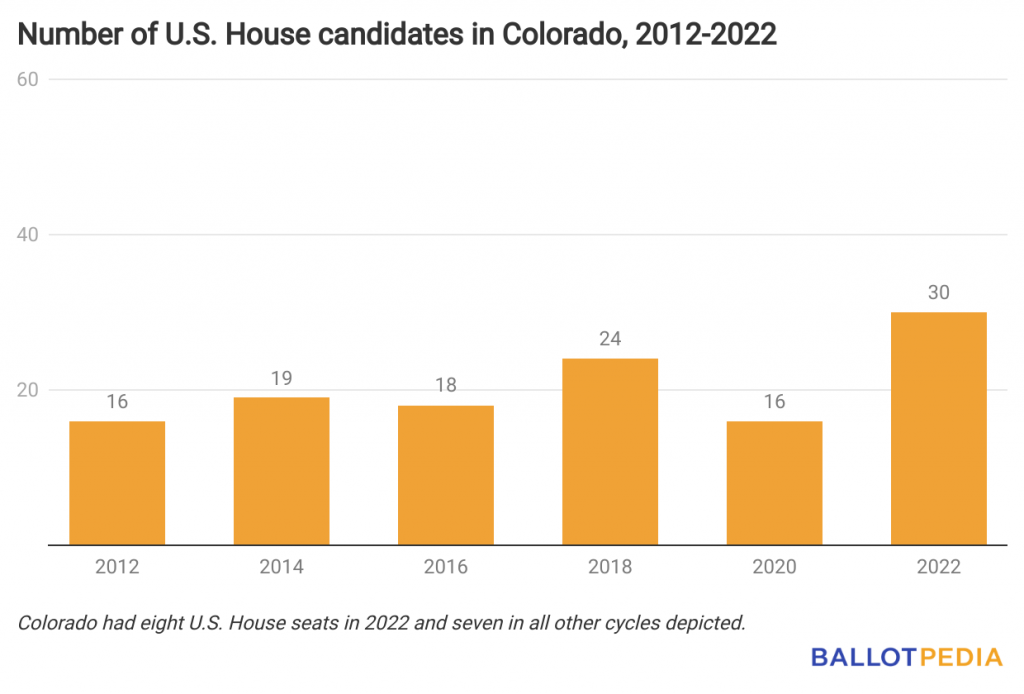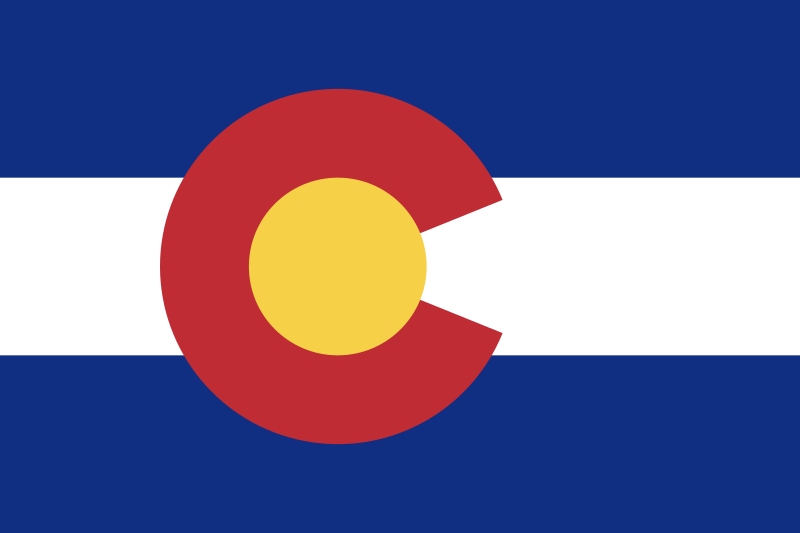The filing deadline for candidates running for Congress in Colorado this year was March 15, 2022. Thirty candidates are running for Colorado’s eight U.S. House districts, including 12 Democrats and 18 Republicans. That’s 3.75 candidates per district, more than the 2.28 candidates per district in 2020 and the 3.43 in 2018.
Here are some other highlights from this year’s filings:
- This is the first election to take place under new district lines following the 2020 census, which resulted in Colorado gaining one congressional district.
- The 30 candidates running this year are the most candidates running for Colorado’s U.S. House seats since at least 2012, the earliest year for which we have data.

- Two seats — the 7th and the newly-created 8th district — are open. Rep. Ed Perlmutter (D), who represents the 7th district, is retiring.
- The two open seats this year are the most open seats in Colorado since at least 2014. There were no open seats in 2020 and 2016, and one open seat in 2018 and 2014.
- Six candidates, including incumbent Rep. Doug Lamborn (R), are running in the 5th district, the most candidates running for a seat this year.
- There are three contested Democratic primaries this year, the most since 2018, when five Democratic primaries were contested.
- There are five contested Republican primaries, the most since at least 2014, the earliest year for which we have data.
- Four incumbents are facing primary challengers, the most since at least 2014.
- Two incumbents, Rep. Joe Neguse (D) from the 2nd district and Rep. Jason Crow (D) from the 6th district, are not facing any primary challengers.
- Candidates filed to run in the Republican and Democratic primaries in all eight districts, so no seats are guaranteed to either party this year.
Colorado and four other states — Illinois, New York, Oklahoma, and Utah — are holding primary elections on June 28. In Colorado, primaries are conducted on a semi-closed basis, meaning that only registered party members and unaffiliated voters may participate in a party’s primary (voters registered with other political parties cannot participate). Winners in Colorado’s primaries are determined via plurality vote, meaning that the candidate who receives the greatest number of votes cast wins the primary election even if he or she does not win an outright majority.
Additional reading:


